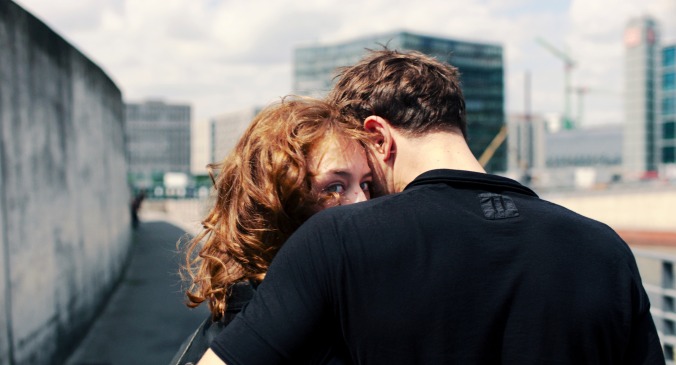War breaks out between two high concepts in Christian Petzold’s Undine

Nobody likes being dumped, but Undine Wibeau (Paula Beer) takes it harder than most. “If you leave me, I’ll have to kill you,” she tells boyfriend Johannes (Jacob Matschenz), in a tone that sounds more sorrowfully resigned than viciously angry. “You know that.” Her threat isn’t empty, yet what follows isn’t the tale of romantic obsession you might expect—or, it is, but involving a different guy altogether. For while seeking Johannes at their regular café across the street from where she works, Undine meets Christoph (Franz Rogowski), a gentle soul with whom she’s lying on the ground just 30 seconds after they first lock eyes, thanks to his nervous stumble into a huge aquarium that cracks and explodes. That sounds like the opening of a rom-com, but writer-director Christian Petzold, whose Transit likewise starred Beer and Rogowski, has something more unusual in mind. Those who know what an undine is might have an inkling of an idea.
Undine wears its supernatural element very lightly, however. Instead, Petzold gets heavy-handed with his central metaphor, expressed via Undine’s job: She’s a docent of sorts at Berlin’s Senate Department For Urban Development And Housing, where she gives lectures about the city’s architectural history. In particular, we hear a great deal about the site of Berlin Palace, home to German royalty from 1443 until 1918. Heavily damaged by bombing during World War II, the palace was torn down and replaced with a modernist building; after the Berlin Wall fell, that East German palace was itself demolished and eventually replaced with a replica of the original palace, which currently houses a museum. (Work was completed only last year.) How this ostensibly tangential information relates to Undine’s romantic life is left as an exercise for the viewer, but you’d have to be pretty chowderheaded to miss the point. Especially when—precisely halfway through the movie—Undine and Christoph chance to walk past Johannes and his new girlfriend while crossing a bridge, setting off a series of repercussions that aren’t fully rational, or even explicable.
Petzold’s skill as a filmmaker has never been in doubt (see also Phoenix, Barbara, Jerichow, etc.), and Undine boasts its share of arresting images: Undine repeatedly observing Johannes at “their” café from a vantage point on the Housing Department staircase, or removing her scuba gear to swim alongside an enormous catfish known as Big Gunther. What’s more, Beer and Rogowski seem to be jointly taking Nina Hoss’ place as Petzold’s muse—though, as noted, this film questions the wisdom of trying to replace what’s lost, perhaps serving as a sort of auto-critique. Beer in particular assiduously underplays her oddball role, which leaves us in the dark about what’s really going on while providing an emotional foundation solid enough to render any confusion largely irrelevant. What’s atypically clumsy here is Petzold’s effort to synthesize big ideas: Not only is the architectural metaphor overstated and the mythological element frustratingly vague, but the two have nothing much to do with each other, making Undine play like a bidding war between high concepts—one of them academic, the other genre-inflected. There’s a human (or at least a piscine) heart beating beneath all of that scaffolding, but it’s muffled.